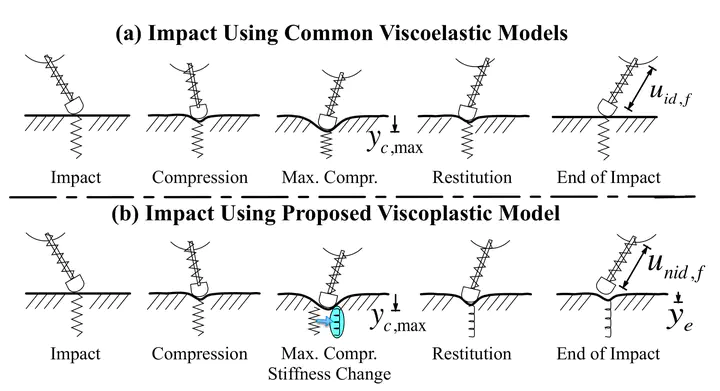
Abstract
Legged locomotion is a rapidly advancing area in robotics, yet still a large number of open questions exist. This work focuses on the foot-terrain interaction and its effect on the motion of a one-legged system. This interaction is usually tackled by disregarding some of the effects of ground deformation like permanent deformation and compaction. Inspired by other areas of engineering, an impact dynamics model is developed, allowing a more thorough study of the behavior during fast dynamic walking. This approach can be regarded as a viscoplastic one. The monopod controller presented in previous work is extended to cope with deformable terrains, based on energy dissipation considerations, without requiring the knowledge of the ground parameters. Simulation results prove the validity of the theory presented.